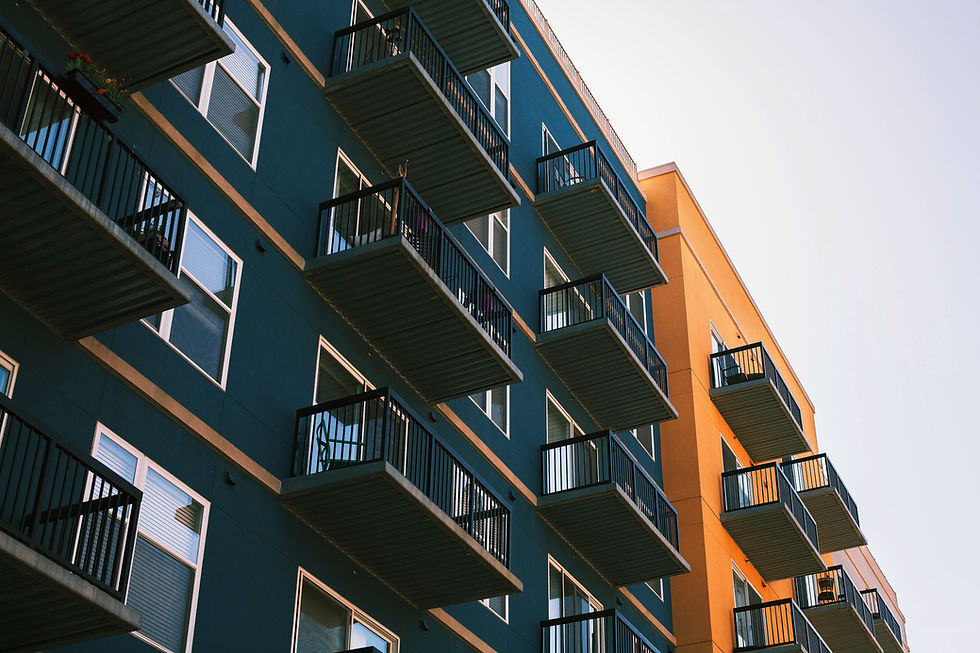Fire Prevention in Apartments: Essential Safety Tips for Managers
- SAL
- May 19, 2024
- 4 min read

As a property management company overseeing apartment complexes, ensuring the safety of your residents is paramount. Fire hazards in apartments can pose significant risks, but with the right precautions and strategies, you can effectively mitigate these dangers. At Seattle Emergency Firewatch, we’re committed to helping you maintain a safe environment through effective fire prevention in apartments. Here are some top fire safety tips every property manager should know:
1. Regular Fire Safety Inspections
Conduct routine inspections to identify and address potential fire hazards in common areas, individual units, and shared facilities. This includes checking electrical systems, ensuring no overloaded outlets, and confirming that heating systems are in good working condition. Additionally, verify that fire doors are operational and that fire escape routes are clear and accessible. Regular inspections help catch potential issues early, preventing them from escalating into serious problems.
2. Implement Fire Safety Training
Educate your staff and residents on fire safety protocols. Conduct regular fire drills to ensure everyone knows the evacuation routes and meeting points. Provide training sessions on how to use fire extinguishers properly and the importance of not using elevators during a fire. Ensure that all new residents receive fire safety information upon moving in, including the location of fire alarms, extinguishers, and exits. Consider holding periodic fire safety workshops to keep everyone informed and prepared.
3. Maintain Clear Emergency Exits
Ensure all emergency exits are clearly marked and free of obstructions. Regularly inspect exit routes to remove any items that may block the way, such as furniture, boxes, or bicycles. Make sure exit signs are illuminated and visible to everyone, including those with visual impairments. In an emergency, clear and accessible exits are crucial for a quick and safe evacuation. Remind residents regularly about the importance of keeping these areas clear.
4. Proper Storage of Flammable Materials
Store flammable materials in designated areas away from heat sources. Use fireproof cabinets for storing items such as cleaning supplies, paints, and solvents. Follow safety guidelines for storing chemicals and other hazardous materials. Ensure that maintenance and cleaning staff are aware of these guidelines and understand the importance of proper storage to prevent accidental fires. Regularly review storage practices to ensure compliance with safety standards.
5. Keep Common Areas Clear
Maintain cleanliness in common areas and avoid clutter that could obstruct evacuation routes or fuel a fire. Regularly inspect these areas for potential fire hazards, such as discarded newspapers, boxes, or holiday decorations. Ensure that residents understand the importance of keeping hallways and stairwells clear. Provide adequate storage solutions to help residents keep personal items out of common areas. Conduct regular clean-up campaigns to maintain a safe and tidy environment.

6. Install and Maintain Fire Safety Equipment
Equip your property with the necessary fire safety equipment, including fire extinguishers, fire blankets, and first aid kits. Ensure all equipment is easily accessible and regularly maintained. Place fire extinguishers in common areas, kitchens, and near potential fire hazards, and make sure they are visible and within easy reach. Regularly check the expiration dates on fire extinguishers and replace them as needed. Conduct routine checks to ensure all safety equipment is in good working condition.
7. Regularly Test Fire Alarms and Smoke Detectors
Schedule regular tests of your fire alarms and smoke detectors to ensure they are working properly. Replace batteries as needed and address any malfunctions immediately. Encourage residents to test smoke detectors in their units monthly and report any issues. Consider implementing a maintenance schedule that includes bi-annual inspections of all smoke detectors and fire alarms. Promptly replace any faulty equipment to ensure the safety of all residents.
8. Conduct Fire Risk Assessments
Perform regular fire risk assessments to identify potential hazards and implement measures to mitigate them. This proactive approach can help prevent fires and minimize damage in case of an emergency. Include assessments of individual units, common areas, and building exteriors. Evaluate the effectiveness of existing fire prevention measures and update them as necessary. Document findings and actions taken to ensure continuous improvement in fire safety practices.
9. Establish an Emergency Action Plan
Develop a comprehensive emergency action plan that outlines procedures for evacuation, communication, and emergency response. This plan should include roles and responsibilities for staff members during an emergency, as well as procedures for assisting individuals with disabilities. Share this plan with all residents and staff, and update it regularly to reflect any changes in the building or occupancy. Conduct regular drills to ensure everyone knows their role and the steps to take in an emergency.
10. Offer Grilling Spaces as an Alternative
To reduce the risk of fires from BBQ grills on balconies, provide designated grilling areas that are safely located away from buildings and other structures. Equip these areas with fire-safe surfaces, proper ventilation, and fire safety equipment, such as fire extinguishers and water sources. Clearly communicate to residents that grilling is only permitted in these designated spaces. Regularly inspect these areas to ensure they remain safe and well-maintained. Consider providing educational materials on safe grilling practices.
11. Have a Plan for Emergency Fire Watch Services
In the event that your fire alarm or sprinkler system is down or requires maintenance, have a plan in place to quickly secure professional fire watch services. Seattle Emergency Firewatch is here to provide immediate response and ensure your property remains safe and compliant during these critical times. Our trained personnel can monitor your property continuously until your systems are fully operational again, providing peace of mind and maintaining safety standards.
By following these fire safety tips, you can create a safer environment for your residents and staff. At Seattle Emergency Firewatch, we’re here to support you with expert fire watch services tailored to your needs. Contact us today to learn more about how we can help protect your property.
Phone: 206-657-6227
Stay safe with Seattle Emergency Firewatch – Your trusted partner in fire safety!






Comments